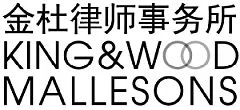- within Strategy, International Law and Environment topic(s)
In late August 2010, it was reported in the press that at least 10 antitrust private actions have been heard in the courts in China (see Two years on, ten private antitrust actions).
This article describes one of the cases – Sursen v Shanda and Xuanting (an alleged abuse of dominance case) – in detail.
Facts
Beijing Sursen Electronic Technology Co., Ltd (Sursen) owns Reading Bar Net (a website hosting digital books). Shanda Interactive Entertainment Ltd. (Shanda) and Shanghai Xuanting Entertainment Co. Ltd (Xuanting) own China Qidian Net (also a website hosting digital books).
China Qidian Net commissioned an author (who went by the pen name "I eat tomato") to write an online series of novels entitled "Star Change". Star Change was one of the most popular online novel series in China in 2008. Xuanting owns the copyright to "Star Change".
Subsequently, Reading Bar Net commissioned two authors (who went by the pen name "Don't eat tomato") to write a series of novels entitled "Star Change Sequel". The content (including story line and character names) of the Star Change Sequel novel series bore striking similarities to the content in the Star Change novel series. In May 2008, the Star Change Sequel novel series was hosted on Reading Bar Net and this novel series also gained widespread popularity.
Shanda and Xuanting accused the Star Change Sequel novel series authors as well as Sursen of violating Xuanting's copyright. On 1 January 2009, the authors of the Star Change Sequel novel series apologized on China Qidian Net and promised to cease writing the series, Star Change Sequel.
Sursen retaliated by filing a suit, pursuant to the Anti-Monopoly Law (AML), alleging that Shanda and Xuanting had abused their dominance in the Chinese online literature market by preventing the authors of Star Change Sequel from publishing any more novels under that series. Specifically, Sursen claimed that Shanda and Xuanting had abused their dominance in the Chinese online literature market by restricting the authors of Star Change Sequel from transacting with Sursen, without a valid reason (refer to Article 17(4) of the AML). Sursen also claimed that Shanda and Xuanting's copyright claim was an invalid claim and therefore could not constitute a "valid reason".
Court process
This case was first head by the Shanghai's First People's Intermediate Court. This court dismissed Sursen's claims (judgment was handed down in October 2009). Sursen then appealed the decision and the appeal was heard in the Shanghai Higher People's Court. The appeal was dismissed and the court upheld the first instance judgment (judgment was handed down in December 2009).
Judgment
The following are the salient points discussed in the two judgments outlined above:
- The first instance court noted that Sursen submitted insufficient evidence that Shanda and Xuanting were dominant in the Chinese online literature market. Sursen relied on two sources to prove that Shanda and Xuanting were dominant: (a) first, Sursen relied on a press article on the web which alleged that Shanda and Xuanting occupied between 60% to 70% of the online Chinese literature industry; (b) second, Sursen relied on a claim on China Qidian Net itself that it occupied approximately 80% of the online Chinese literature industry. The first instance court held that the evidence outlined in (b) was most likely made for marketing purposes and was unlikely to be a properly calculated market share. The appellate court reiterated that the evidence (in (a) and (b) above) submitted Sursen was insufficient and also added that the data may not be objective, fair or accurate.
- The courts also held that Sursen did not clearly define the relevant market.
- The courts held that it was "inappropriate" for Sursen to have commissioned for Star Change Sequel to be written. Overall, the courts held that Shanda's and Xuanting's conduct (of demanding an apology and demanding that the two authors cease writing Star Change Sequel) was "valid", as Shanda and Xuanting were merely trying to defend their intellectual property rights.
Commentary
It is clear that the courts will not accept anecdotal evidence on websites as "objective, fair and accurate" depictions of an entity's market share. It is also interesting that despite there being no finding of dominance (and some degree of lack of clarity as to what the relevant market is) - the courts went on to analyse whether Shanda's and Xuanting's conduct was "valid". From this case, we also learn that the courts are likely to accept an entity's attempts at defending its intellectual property rights as a "valid" reason for certain conduct.
The content of this article is intended to provide a general guide to the subject matter. Specialist advice should be sought about your specific circumstances.


